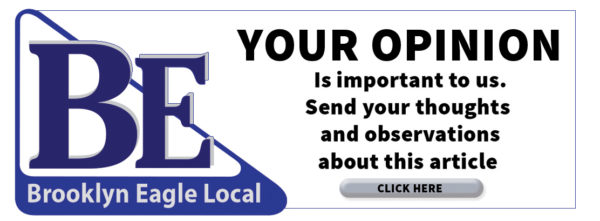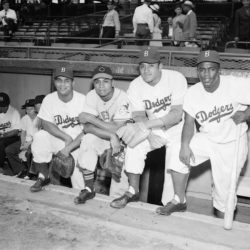The world has changed forever …
Pastor Gilford Monrose. Photo: FN Tate
Over the past year, we have experienced one pandemic after another, bringing both national and global attention to many issues the nation must tackle. Before COVID-19, America’s atmosphere was steeped in gun violence, police misconduct, unemployment, civil unrest, political leadership failures, and more. There is so much going on in our world, and the coronavirus and the lives it has taken have left people living in fear, uncertainty and anxiety. The world has changed forever, and the church has changed forever, whether you want to believe it or not.
Our health and social realities have forced small businesses and even churches to close, and those that are not closed are struggling to survive. Schools face a dilemma of whether to open or not to open, which further widens the educational gap between poorer and richer communities. So many areas of our economy and our way of life no longer exist. There is now a new normal.
Despite all of these difficult realities, 2020 has been the best year of my ministry, service to humanity, and transformational leadership. The greater the need, the greater the opportunity I had to serve. During the pandemic, the doors to my church were closed for about 12 months. However, the services provided by our church were still open as we continued to fulfill our mandate of serving our community with COVID-19 food aid and making deliveries to those who are medically at high risk, supporting workers in frontline and their families, and helping many cope with the hidden effects of working in our medical facilities and nursing homes. From transportation workers to workers in the food industry and other essential services, our church has worked diligently to spread hope by simply showing up where and when we were needed most, including by marching for peace. social justice and against gun violence, providing comfort to injured families and supporting our first responders. Why? Because the church is really about the people.
I pray that we embrace the correct framework regarding the actual role of the church in the life of the believer in the 21st century: this should never conflict or compete with our relationship with God. God did not close. He did not cease to be God because the doors of the church were closed. In fact, the more we saw the need, the more we saw God being faithfully present.
The pandemic has also offered the church the opportunity to become the church God wants it to be. We must now look deep within ourselves and lift ourselves up to meet the needs of all in the name of Christ. Church is more than entertainment, having large numbers of people attending services or hearing empowering messages from the pulpit to make you feel good. The Church is the lifeline of any society, a unique place that should inspire change in people’s lives.
What do we need now? We have to go back to God. Let’s put the church in its rightful place: by focusing on being moral voices of hope and emphasizing visionary leaders to step forward to serve their cities as public servants. and prophetic voices to bring a new level of professional, courageous and truly transformative leadership that help us bounce back, rebuild, recover from the lingering effects of COVID-19 and racial injustice, and restore our relationship with God .
About Rev. Gilford Monrose
Pastor Gilford Monrose, spiritual leader of the historic Mount Zion Church of God (Seventh Day) in East Flatbush, is also co-founder and chairman of the 67th Precinct Clergy Council. Known as GodSquad, this council is a faith-based clergy organization that works to defuse tensions in the neighborhood and serves as a liaison between their communities and law enforcement. Recently, The GodSquad created Clergy For Safe Cities (CSC), a national coalition to support clergy-based gun violence prevention initiatives. Pastor Gil has also served as Director of Faith and Clergy Initiatives in the Brooklyn Borough President’s Office since 2013, with a successful track record in bringing together religious leaders and clergy from diverse traditions to improve Brooklyn communities.







Comments are closed.